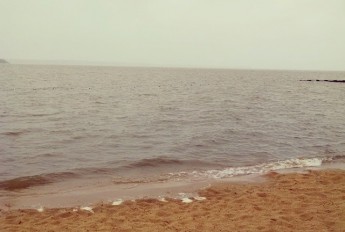Last night while browsing on my phone I came across a notification: Ancestry.com had found a clue about my great-great-great-grandfather Frances. Since the last time I had checked the app, Ancestry had attached Civil War records to members of my family tree.
Clicking on the hint, I was shown a scanned image of a Union draft registry from September-October 1863. Frances was called upon to fight for the United States from Lewis, Kentucky, following in the footsteps of his great-great-grandfather William, a Revolutionary War Colonel, who crossed the Delaware with George Washington. Frances’ son Ezra married a woman named Nancy DeHart, whose uncle Stephen was captured as a prisoner-of-war while fighting for the Confederacy from Patrick, Virginia.
This is just the tip of the metaphorical iceberg that is my knowledge of my own genealogy. I know that my Swiss German ancestors Hans and Maria Burgi came to Philadelphia in 1709 from Biglen, a small village east of Bern. I know that my paternal Scottish ancestor William Crawford came to Norfolk in 1648, at the ripe age of 18, from Ayrshire. I know that my English ancestor John Adkins came to Henrico from Bedfordshire in the mid-17th century. Those DeHarts I mentioned earlier? Dutch. Simon DeHart came to New York City in 1664 from Nieuwkoop, a town about halfway between The Hague and Amsterdam in the western Netherlands. The house Simon built in Brooklyn was supposedly the oldest structure in New York at the time of its demolition. Through some frankly dubious connections, Ancestry.com tells me I’m descended from Robert the Bruce and the Stuart kings of Scotland. I can trace my DNA back over 1,200 years through over 1,100 family members.
This seems to be an exclusively white privilege.
My partner, whose parents were born in Kerala, the southwesternmost state in India, knows her family history no further back than the 20th century. Part of the difficulty involves British imperialism (a Jamaican friend fares only slightly better), but local customs pose problems for genealogy tracking as well.
One of the not-so-surprising boons to tracking family histories is the presence of informative gravestones, common in Western Christendom where full-body burials are the norm. Family members tend to be buried nearby to each other in cemeteries, with grave markers containing vital information such as full names, dates of birth and death, and occasional lists of relatives. In contrast, Hindu custom calls for cremation, and for the resulting ashes to be placed into the holy river Ganges, or a suitable fluvial alternative. As such, Indians often don’t have the ability to wander around kirkyards searching for ancestors.
As mentioned above, elements of my family have been in the United States since a few decades after European settlement. Many of my fellow Americans likely share such length of familial residency, but would have no way of knowing it. The very vast majority of Americans of African descent likely cannot trace their records before the Civil War, if even that far. An essential component of chattel slavery is the complete dehumanization of peoples. As Prof. Skip Gates’ documentary series African Americans: Many Rivers to Cross made brutally clear, the changing of the names of slaves served to disconnect them from their ancestors to further alienate their humanity. Property doesn’t have a family tree.
Ironically, as shown in Many Rivers, major plantations often kept detailed genealogical records for slaves that could be used by modern African-Americans to trace their American history. Of the records that still exist, many are likely private property not open to the public. Even those records held in libraries will probably never help black Americans to trace their families prior to enslavement. As with many conditions of slavery, this erasing of personal histories is a national tragedy.
My whiteness affords me privileges not only in my present and my future, but in my ability to know my past.

